Protecting Your Eyes From Pool Water Irritation
It’s pretty common to hop in the pool for a swim and come out with that all-too-familiar burning sensation in your eyes. For many swimmers, eye irritation feels like just part of the deal. Stinging, redness, and blurry vision can stick around long after you’ve dried off, which isn’t exactly the best way to enjoy the water. Whether you're swimming for fitness or fun, ignoring your eye health can make each dip in the pool more uncomfortable than necessary.
Protecting your eyes during and after a swim matters more than most people think. Pool chemicals like chlorine help keep the water clean, but they don’t always treat your eyes kindly. The good news is you don’t have to deal with irritation every time you hit the pool. With a few adjustments and smart habits built into your routine, you can swim comfortably without paying for it later with red, itchy eyes.
Understanding How Pool Water Affects Your Eyes
Even though swimming pools are meant to be clean and safe, the chemicals that help make them that way can cause problems for your eyes. Chlorine is the most common culprit, and while it works great at killing bacteria, it can also mess with the thin film that protects your eyes. Once that layer gets stripped away, your eyes feel dry, itchy, and vulnerable.
It’s not just chlorine, either. Some pools contain extra cleaning agents like bromine or pH adjusters that might make things worse. If your eyes are on the sensitive side, they’ll likely react faster. For people who swim often, this irritation can start to feel normal, even though it’s definitely not something you should get used to.
Eye irritation after swimming might look a little different for everyone, but usually shows up as:
- Red or bloodshot eyes
- Itching or burning during or after swimming
- Puffy eyelids or under-eye areas
- Blurry vision that takes a while to clear up
These symptoms don’t mean you need to avoid pools completely. They just point to a need for better protection. A few small changes can go a long way in helping your eyes feel better, even after a long pool session.
Best Ways To Prevent Eye Irritation Before It Starts
Prevention really starts before you even get wet. Being proactive with eye care can save you a lot of discomfort down the road. The easiest and most effective way to protect your eyes is to wear swim goggles that fit well and seal tightly. They keep water out, which means chlorine and other irritants aren’t getting in to cause problems.
When shopping for goggles, avoid focusing just on looks or price. Pay attention to how they fit your face and whether they create a snug seal around your eyes. Here are a few things to keep in mind when picking a pair of goggles:
- Soft silicone or rubber seals often feel more comfortable on the skin
- Adjustable straps help create a better fit and reduce leaks
- Tinted or mirrored lenses can protect from glare if you're swimming in the sun
- Anti-fog lenses improve visibility and reduce the need to take goggles off to wipe them
Besides goggles, keep lubricating eye drops in your swim bag. Use a drop in each eye before swimming to keep them moist, and again after your swim to help flush out anything left behind. Even rinsing your eyes gently with clean water after swimming helps reduce irritation and residue that chemicals leave behind. Mixing a few of these small habits together will give your eyes a much better chance of staying comfortable.
How Eye Gel Packs Can Ease Pool Irritation
After a good swim, even if you've worn goggles and rinsed off, your eyes might still feel tired or tender. That’s where an eye gel pack can make a big difference. These soft, reusable packs are made to soothe the delicate skin around your eyes while helping reduce redness, swelling, and that lingering sting you sometimes feel after chlorine exposure.
Eye gel packs can be chilled or heated depending on your needs, though most swimmers prefer to use them cold after a swim. A cool compress helps relax the eye area and calm down any inflammation. If your eyes get puffy or feel overly strained, it’s a quick and easy way to refresh them.
Here's how to properly use an eye gel pack after swimming:
- Place the gel pack in the fridge before your swim so it's ready when you're done. Avoid using the freezer unless the label says it’s safe
- Once chilled, lie back and gently place it over your closed eyes. Keep it there for 10 to 15 minutes
- Make sure your face is clean before using it. You don’t want chlorine or sunscreen getting trapped under the pack
- Store the eye gel pack in a clean, dry place when not in use. Wipe it down after every use with a soft, damp cloth
Make this a regular part of your post-swim routine, especially on extra long days in the pool. Doing so may prevent eye puffiness from building up and help you bounce back faster between swims. One swimmer we know keeps a small cooler by the pool just for this purpose and starts her recovery while drying off.
Extra Smart Habits For Healthier Eyes
Besides goggles and eye gel packs, a few basic steps can really help keep eye irritation in check. These everyday actions don’t take much effort but can have a big payoff when added to your regular swim routine.
Here are some helpful steps to reduce pool-related eye stress:
- Rinse your face and eyes gently with clean, fresh water as soon as you’re done swimming. This helps wash away leftover chlorine
- Use a soft towel to pat your face dry. Skip rubbing the eyes, which can make redness or tenderness worse
- Blink often after swimming. It might sound small, but blinking spreads moisture across your eyes and helps push out irritants
- If you’re in the pool for a long session, get out now and then to let your eyes rest. Just taking a few short breaks can stop irritation from building up
By pairing these smart habits with protective gear and recovery tools, you’re setting yourself up for fewer post-swim issues. Maintaining a few simple routines around your pool visits makes every swim easier on your body and your eyes.
Keep Your Swim Refreshing, Not Irritating
There’s no need to deal with red, itchy eyes every time you take a dip. A bit of preparation can go a long way, and taking care of your eyes before and after a swim can help you feel more comfortable both during your workout and long after you've left the pool. Small habits like wearing properly fitted goggles, using eye gel packs, and rinsing thoroughly after a swim can all work together to protect your eyes from harsh pool chemicals.
Your eyes are just as important as any other part of your body when it comes to staying swim-ready. Finding what works best for you might take a little testing, but it's worth it. Build your own blend of pre-swim prep and post-swim care, and keep your eyes clear, calm, and focused every time you hit the water.
To keep your eyes feeling great during and after every swim, consider adding a soothing eye gel pack to your routine. At TRIHARD, we know how important post-swim recovery is, so including this quick and easy step can help reduce irritation and leave your eyes refreshed and comfortable.


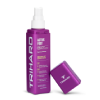



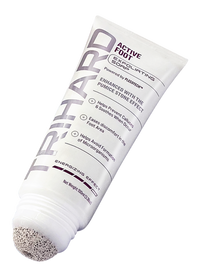



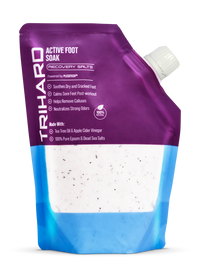




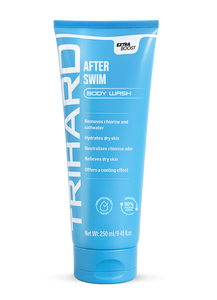
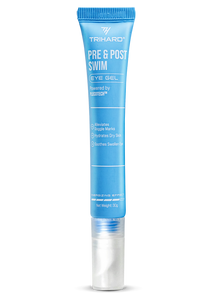
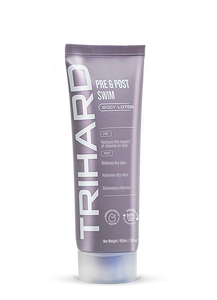
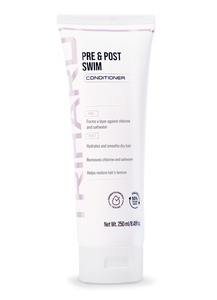
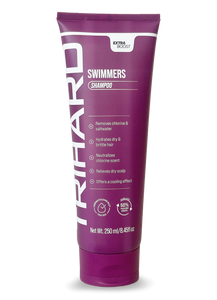
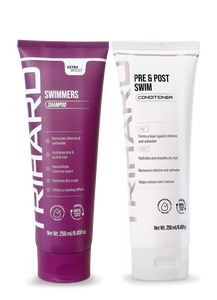
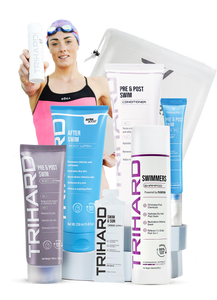
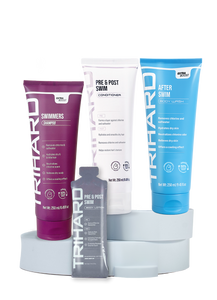






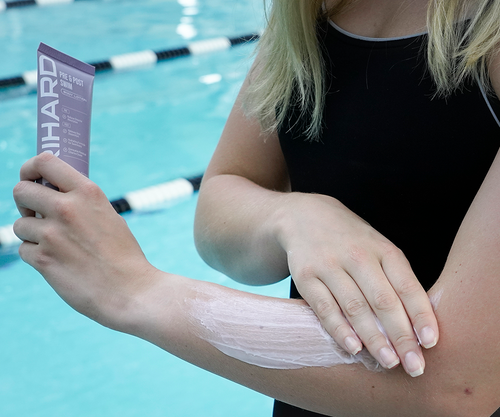

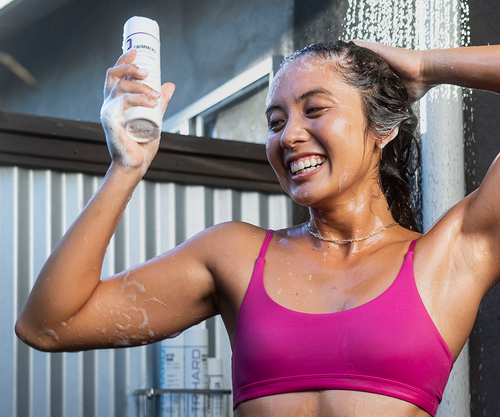
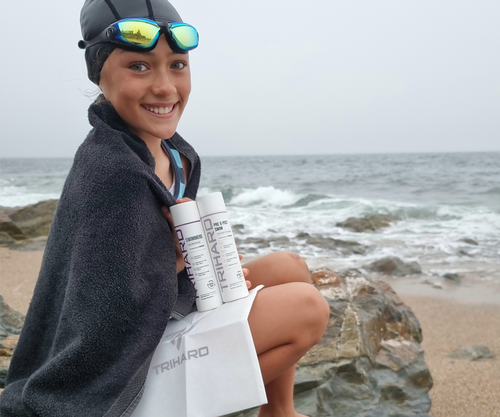
Dejar un comentario